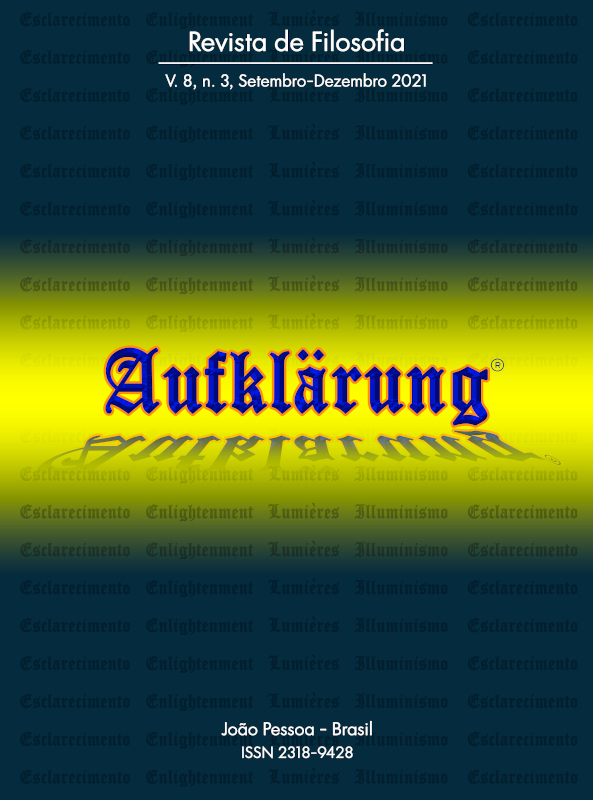Emerging paradigmas: Dialogues with Edgar Morin on an intercultural horizon
DOI:
https://doi.org/10.18012/arf.v8i3.61519Keywords:
Paradigm, Edgar Morin, interculturality, knowledgeAbstract
The objective of this article is to present the need for new paradigms due to the failure of the model implanted by modernity that, for centuries, has marginalized the wisdoms and knowledge of various cultures in the world. Modern science, in an effort to prioritize what is measurable and technical, has not been able to understand living beings, their reasoning, rituals and beliefs. Hence, this work presents some elements that can contribute to the construction of the common good of humanity.
Downloads
References
ALBÁN, A. (2005), El desencanto o la modernización hecha trizas. Una mirada a las racionalidades en tensión, En: Pensamiento crítico y matriz (de) colonial (Edit. Catherine Walsh), Quito: UASB y Abya-Yala
ARENDT, H. (2013), La nature du totalitarisme (Trad. M. Launay), Paris_: Payot.
ARENDT, H. (2009), Journal de pensée (Trad. B. Goetz), Vol. I., Paris_: Seuil.
ARENDT, H. (2005), La vie de l’esprit (Trad. L. Lotringer), Paris: Puf.
ARENDT, H. (2000), La philosophie de l’existence et autres (Trad. L. Lotringer), Paris_: Payot.
ARENDT, H. (1985), Condition de l’homme moderne (Trad. G. Fradier), Paris_: Calmann-Lévy
ARENDT, H. (1982), L’imperialisme (Trad. M. Leiris), Paris: Fayard.
BOFF, L. (2021), Comer el mundo o salvaguardar el mundo. Paradigmas opuestos (Trad. M.J. Gavito), Recuperado de: https://leonardoboff.org/2021/04/25/comer-el-mundo-o-salvaguardar-el-mundo-paradigmas-opuestos/
BOFF, L. (2002), Ecología, El Grito de la Tierra, El Grito de los Pobres, Madrid: Trotta.
DE SOUSA, B. (2008), Un discurso sobre las ciencias, México: Siglo XXI.
DE SOUSA, B. (2005), El Milenio Huérfano, Madrid: Trotta.
DICTIONNAIRE Le Nouveau Petit Robert 2007
FERNÁNDEZ, K. (2016), Paradigma de investigación y pueblos indígenas del primer mundo: crítica cultural del trabajo social, Revista Andaluza de Antropología, N° 10, pp. 54-78.
FORNET-BETANCOURT, R. (2001), Transformación Intercultural de la Filosofía. Bilbao: Desclée de Brouwer.
GADAMER, H. G., (2008), La philosophie herméneutique (Trad. J. Grondin), Paris_: Puf.
GADAMER, H.G. (1996), Vérité et méthode (Trad. P. Fruchon), Paris_: Éditions du Seuil.
HABERMAS, J. (1981), Perfiles filosófico-políticos, Madrid_: Taurus.
HOUTART, F. (2013), El bien común de la humanidad, Quito: Iaen.
IÑO, W.G. (2017), Epistemología pluralista, investigación y descolonización, RevIISE, Vol. 9, N°9, Bolivia.
LUBENOW, J. A. (2018). Democracia e direitos humanos como ideologia: as críticas de Jürgen Habermas à política de poder unilateral norteamericana e à ONU. Aufklärung: Revista De Filosofia, 5(3), p.141–154. https://doi.org/10.18012/arf.2016.43553
MARTINEZ, C. (2016), Conocimiento intelectual y saberes indígenas en la educación intercultural bilingüe en el Ecuador, Alteridad, Vol. 11, N° 2.
MORIN, E. (2015), Penser global, Paris_: Éditions Robert Laffont.
MORIN, E. (2005), Introduction à la pensée complexe, Paris_: Editions du Seuil.
MORIN, E. (2000), Les sept savoirs nécessaires à l’éducation du futur, Paris_:Éditions du Seuil.
NOBOA, P. (2005), La matriz colonial, los movimientos sociales y los silencios de la modernidad, En: Pensamiento crítico y matriz (de) colonial (Edit. Catherine Walsh), Quito: UASB y Abya-Yala
LAME, M. (2004), Los pensamientos del indio que se educó dentro de las selvas colombianas, Popayán: Universidad del Cuca.
PEREZ, M.L. y ARGUETA, A. (2011), Saberes indígenas y diálogo intercultural, Cultura científica y saberes locales, Año 5, N° 10
PIÑACUÉ, J.C. (2014), Pensamiento indígena, tensiones y academia, Tabula Rasa, N° 20, Enero – Junio. Bogotá – Colombia.
RAWLS, J. (2012), Théorie de la justice, Paris_: Éditions du Seuil.
SAPERAS, E. (2000) Entrevista a Edgar Morin, Recuperado de:
SCHNÄDELBACH, H., (2000), Tipos de racionalidad (Trad. J.L. López), En: Revista Endoxa: Series Filosóficas, N° 12.
SPOEDER, M. (2019), Emoción, racionalidad y saberes indígenas en los mecanismos de democracia participativa: el caso de la consulta indígena en Chile, Recuperado de: https://revistas.urosario.edu.co/index.php/desafios/article/view/7288
TOBAR, M.E. (2020), El sistema educativo indígena propio – SEIP, una política pública emergente de los pueblos indígenas de Colombia, Revista electrónica Iberoamericana, Vol. 14, N°. 2, 2020. En: http:www.urjc.es/ceib/
VÁSQUEZ, P. (2009), Derechos Humanos, Cuenca: Universidad de Cuenca.
VILLARREAL, H.S. (2020), Educación propia ¿Es posible Episteme Raizal-Ancestral Indígena? Cuestiones pedagógicas, Vol. 2, N°29, España.
Additional Files
Published
How to Cite
Issue
Section
License

This work is licensed under a Creative Commons Attribution 4.0 International License.
Journal general policy
1.This journal works under a Creative Commons License aplied to online journals. That icence can be read in the following link: Creative Commons Attribution 4.0 International (CC BY 4.0).
2.Accordingly to this License, a)the journal declares that authors hold the copyright of their articles without restrictions, and they can archieve them as post-print elsewhere. b)the journal allow the author(s) to retain publishing rights without restrictions.
Metadata Policy for information describing items in the repository
1. Anyone may access the metadata free of charge at anytime.
2.The metadata may be re-used in any medium without prior permission, even commercial purposes provided the OAI Identifier or a link to the original metadata record are given, under the terms of a CC BY license refered for the Journal.







































